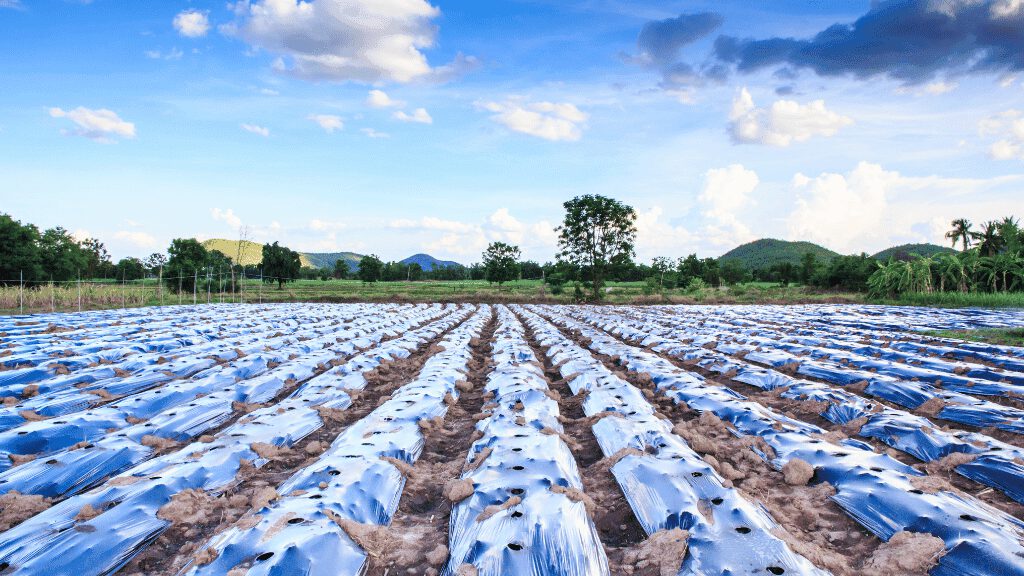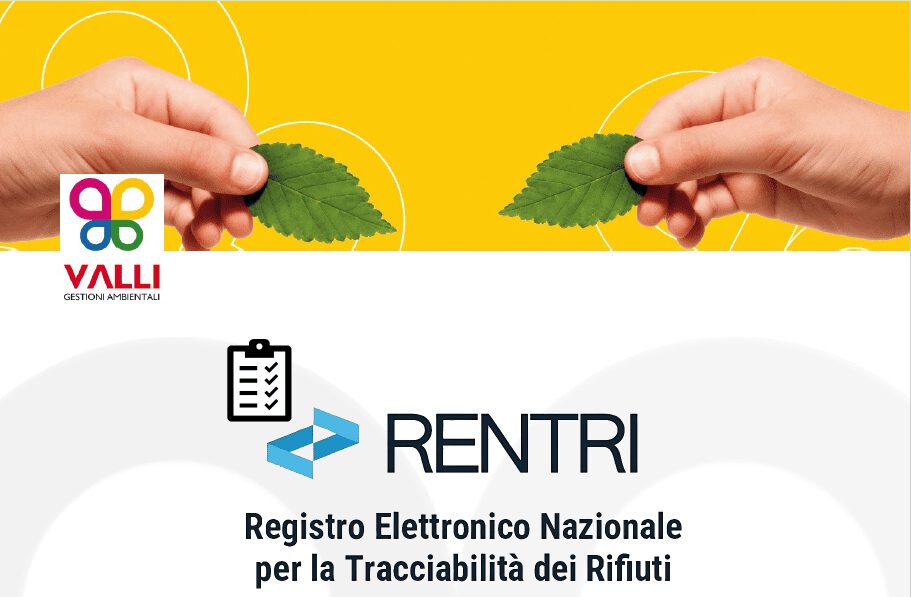Agricultural plastic, which is used in abundance to improve crop efficiency and productivity, has turned into a serious environmental problem due to its difficulties in disposal. As farmers increasingly rely on this indispensable resource, the question of how to responsibly manage this waste becomes crucial.
This article aims to inform agricultural producers and all stakeholders about correct and sustainable agricultural plastic disposal practices, addressing its classification, current regulations, associated costs and disposal procedures.
How to dispose of agricultural waste
Effective disposal of agricultural waste starts with its thorough segregation. Materials such as plastic, glass, metal, and organic residues must be separated to facilitate their specific treatment.
Plastic used in agriculture, for example, should be collected separately from organic waste and hazardous chemicals. This initial step not only makes the disposal process more efficient but also increases the chances that the material can be recycled or valorized.
For farmers, it is vital to adhere to local recycling and disposal programs. Valli Gestioni Aziendali offers dedicated services for the management of agricultural waste, including specific collection points or scheduled collections. These resources are essential to ensure that all waste is managed responsibly, minimizing the environmental impact of agriculture.
How agricultural waste is classified
The classification of agricultural waste facilitates its proper management and disposal. Here’s a detailed breakdown:
- Plastics: Includes mulching films, tunnels and greenhouse sheets, containers and bottles for fertilizers, pesticides, and other chemicals. These materials require specific recycling processes due to potentially hazardous chemical residues.
- Organic: Organic waste includes crop residues such as leaves, stems, and other plant waste, as well as manure and other animal residues. These materials can be composted or turned into biogas, providing an opportunity for renewable energy production or improvements in soil fertility.
- Hazardous: Hazardous waste includes chemical containers, waste oils, and batteries. This waste requires special disposal procedures to avoid environmental contamination and risks to human health.
How to dispose of plastics?
Plastic, due to its durability and versatility, has become an irreplaceable component in modern agriculture. However, it is precisely these characteristics that make its disposal a significant challenge for the environment. Sustainable management of agricultural plastics starts with reduction at source, followed by reuse and, finally, recycling where possible.
Reduction at source
Reducing plastic waste starts with choosing products and technologies that minimize reliance on these materials. For example, adopting drip irrigation systems can reduce the need for mulching films, while selecting more durable and easily recyclable materials can decrease the amount of waste produced. Farmers can also explore biodegradable alternatives to traditional plastics, although it is important to assess their overall environmental impact and compatibility with existing farming practices.
Reuse and recycling
When reduction at source is not possible, reuse and recycling become crucial steps. Plastic materials, such as greenhouse tarps and fertilizer containers, can be reused for multiple seasons if treated with care. In addition, partnering with specialized recycling services can facilitate the transformation of agricultural plastics into new products, reducing the need for disposal and the environmental footprint of agriculture.
Collaboration and awareness
Finally, the key to effective disposal of plastics in agriculture lies in collaboration between farmers, suppliers, government bodies and environmental organizations. Sharing information and resources can help identify best practices and technologies for waste management. Additionally, raising awareness of the importance of recycling agricultural plastics can increase support for and participation in waste management programs, helping to create a more sustainable agricultural system for future generations.
Through these integrated approaches, from reduction at source to recycling, it is possible to effectively address the challenge of disposing of plastics in agriculture, thus safeguarding the environment for future generations.
To find out more, see our dedicated page.
Agricultural waste legislation
Agricultural waste legislation aims to prevent environmental damage by encouraging sustainable disposal practices. Specific regulations may include requirements for registering farmers as waste producers, requiring them to keep detailed records of waste produced and disposed of, and adherence to standardized procedures for safe disposal.
In some cases, the law also provides for the obligation to participate in extended producer responsibility schemes, which require manufacturers of packaging and chemicals to contribute to the costs of collecting and recycling the waste generated by their products.
Penalties for non-compliance can be severe, including fines, restrictions on farming, and even criminal prosecution. Therefore, it is crucial for farmers to understand and comply with local and national regulations regarding agricultural waste disposal.
To find out more, consult the dedicated page on our website.
To learn more about waste disposal, read the in-depth study on the dedicated resource or read on
Cost of disposal of agricultural waste and fertilizer bags
Addressing the cost of disposing of agricultural waste and bags of manure requires a strategic approach that can balance environmental and economic sustainability. Costs can vary widely depending on the type of waste, the size of the farm, local policies and the availability of recycling infrastructure. Here are some key things to consider to optimize expenses and turn potential liabilities into assets:
Strategies to Reduce Costs
- Reducing Waste at the Source: Adopting agricultural techniques that minimize the use of plastic materials or favor biodegradable materials can significantly reduce the amount of waste produced, reducing disposal costs.
- Recycling Programs and Grants: Inquire about any local recycling programs that may offer services at reduced rates or subsidies for the purchase of more sustainable materials. Some programs may cover a portion of the disposal costs or offer incentives for adopting eco-friendly practices.
- Composting and Biogas Technologies: Investing in technologies that allow organic waste and bags of fertilizer to be transformed into compost or biogas can turn into long-term savings, as well as providing a sustainable energy alternative or improvements for soil fertility.
Specific Costs and Financial Planning
- Cost Analysis: Performing a detailed analysis of the costs associated with waste disposal can help identify areas where you can optimize your expenses. This includes assessing the costs of transport, treatment and any applicable disposal fees.
- Collaborations and Partnerships: Partnering with other farms to organize shared waste collections can reduce transportation and treatment costs. Partnerships with research institutions or recycling companies can also open up opportunities for the development of innovative solutions at low cost.
- Financial Planning: Including projected waste disposal costs in your farm’s annual financial plan allows you to better manage resources and avoid unexpected expenses. Exploring the possibility of accessing European, national or regional funds dedicated to sustainability and the improvement of agricultural practices can provide additional financial resources.
Strategic and conscious management of agricultural waste and manure bags can not only help reduce the environmental impact of agriculture but also represents an opportunity to optimize operating expenses. A proactive approach to waste reduction, recycling and valorisation can transform disposal challenges into sustainable competitive advantages.
Agricultural Plastic Disposal: rely on Valli Gestioni Ambientali
Discover Valli Gestioni Ambientali, the cutting-edge company in the waste disposal and recovery sector. With two strategic plants in Gorlago (BG), we cover not only the main cities of the North, but also the Center and South of Italy, offering specialized services directly or through authorized subcontractors.
At the Valli Gestioni Ambientali plants , plastic waste is stored and divided and then sent to plants that carry out further treatments or recycle them.
Thanks to our integrated management system, we ensure not only maximum operational efficiency, but also a positive environmental impact and cost reduction for our customers.
Valli Gestioni Ambientali has established itself as a leader in the materials recycling sector for over fifty years, facing some of the most demanding challenges in waste disposal management. With proper facilities and highly trained personnel, we ensure excellent service and tangible environmental benefit for all our operations.
Choose the quality and reliability of Valli Gestioni Ambientali for responsible waste management.
If you are looking for a company that deals with waste disposal, fill out the form to be contacted by an expert as soon as possible!




